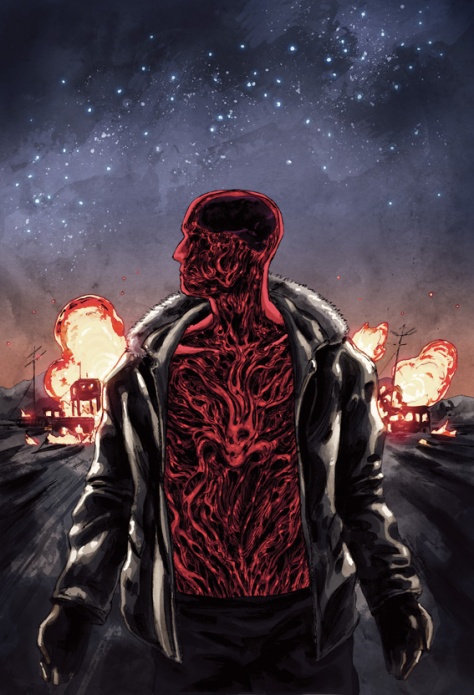
There are certainly Sci-Fi/creature feature/horror movies made throughout the ages where it may not be unjustified to question why an alien that is apparently intelligent enough to build a spacecraft capable of interstellar travel would land on Earth and immediately start acting like a violent, mindless animal. It’s a recurring logic hole generally papered over, thinly, in order to justify traditional genre entertainment. Even The Thing From Another World, the starting point for many of these extraterrestrial thrillers, only provides a vague sort of justification for its monster’s behaviour, and it actually does more plot logic legwork than many of the films that followed it. In general, the alien’s perspective is not always given a lot of thought in these things, although it’s an area where even an otherwise rote story can really distinguish itself…when there’s the motivation to do so.
Speaking of The Thing, John Carpenter’s 1982 remake is another one of those movies where the question applies, probably even more than the original. It features one of the most inventively-portrayed alien creatures in film history, but its true form is so incomprehensible that it seems almost impossible to imagine it piloting a spaceship—but it not only does that, it also has the knowledge to build another one from scrap parts. I’ve always thought of the titular Thing as being like an intelligent communicable disease, seeking only to propagate itself and absorbing whatever knowledge and technical skill it needs to do so. Other people have their own theories about this, but only Sci-Fi writer/marine biologist Peter Watts, author of the evocative first contact novel Blindsight, managed to get his version published in Clarkesworld, one of the leading English language SF publications. “The Things”, his re-interpretation of the dynamics of John Carpenter’s version of the story, focuses entirely on the alien’s perspective, giving us a surprisingly benevolent take on the shapeshifting flesh beast that infects everything around it—as it turns out, such a thing is possible.

